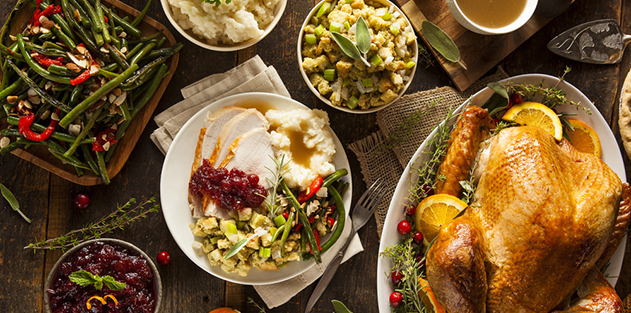‘Tis the season for turkey, stuffing and unbearable small talk around the family dinner table.
It’s Thanksgiving, and lucky for you, the country just completed its most contentious political contest in decades. While that means there will be plenty of fodder for banter, it also makes it likely that many of you will experience at least one instance of awkward political dialogue this Thursday night — and many of you are undoubtedly nervous about how to handle familial disagreement.
This election has been particularly emotional, making politics personal in a way that differentiates it from many other historical political contests. And, it’s the first time that many of us will be old enough to intelligently engage in well-informed political discussions — in many cases, some of us are better informed than the elder relatives sitting across from us. Navigating these conversations with family is a bit more complex than shouting in a protest or making posts on social media, and it’s important to be prepared before someone starts throwing gravy.
Perhaps the best approach to avoiding heated political disputes is simply avoiding politics. There are other things to talk about, such as football, the weather or your Pitt-induced exhaustion. But let’s be honest: the likelihood of politics remaining untouched all evening long is pretty low.
When it inevitably happens, stand your ground. If a family member is making blanket remarks about a group because they think there’s nobody there to speak up in defense, be that person. Obviously you don’t want to begin screaming about privilege right away, but try to approach the issue on their level. If they don’t understand why a person wearing a hijab or someone of color is so upset about this election, you might feel a responsibility to at least try connecting the dots for them. Being an ally shouldn’t stop once you’re inside your home. In fact, that’s one of the most important places to take a stand in support of those not there to represent themselves.
Which isn’t to suggest that you start fighting with your relatives over pumpkin pie — especially not at the risk of your own safety or the emotional stability of your loved ones. But being close to people, including your family members, means you might have their ear and their respect in a way no one else does. If you can find an appropriate, non-threatening way to level with him, you might have a better chance of helping Uncle Mike understand the intricacies of identity politics better than a stranger would over the internet.
It’s also a possibility that there’s someone else at the table who needs defending. When Aunt Martha or cousin Sheldon are a few glasses of wine in, they might begin dropping the polite facade — and it can be insulting. Racism, sexism and intolerance are not soft-hearted topics, and you shouldn’t feel compelled to address them with soft-hearted responses.
It’s also important to remember that plenty of others will be facing the same issues you are. Let your friends who are home for the week know that you’re available via text or call. If you’re frustrated or upset about something you hear and aren’t up to a full on argument or are in a situation where speaking up about gender or religion would make you feel unsafe, reach out to someone you feel comfortable venting to.
Thanksgiving is great sometimes. Other times, it’s terrible. Regardless, eat a bunch of food, drink up if you’re of legal age and stand for what’s right.
This year, be thankful for your voice.


